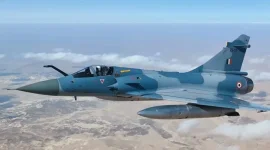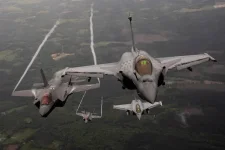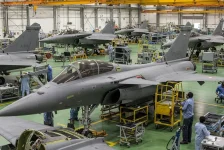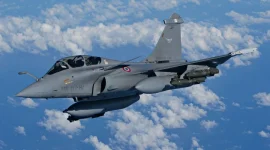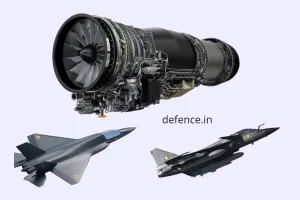- Views: 4K
- Replies: 11
A recent proposal from French aerospace giant Dassault Aviation, offering to produce Rafale fighter jets in India with 60% indigenous content, has ignited a critical debate on the country's defence ambitions.
The offer is part of the tender for the Indian Air Force's (IAF) Multi-Role Fighter Aircraft (MRFA) program, a mega-project to acquire 114 new jets.
While a 60% "Made in India" component appears significant, strategic analysts argue that it falls short of securing India's long-term military and economic objectives, for which a threshold of at least 80% local content is considered essential.
This discussion is further complicated by Dassault's track record, as the company has yet to fully honour its offset commitments from the previous purchase of 36 Rafales, casting doubt on the credibility of new manufacturing proposals.
The Strategic Need for Deep Indigenisation
India's national policies, such as "Make in India" and "Aatmanirbhar Bharat" (Self-Reliant India), have established a clear mandate for increasing self-sufficiency in defence manufacturing.The MRFA program is a cornerstone of this vision, intended not only to replenish the IAF's dwindling squadron strength but also to fundamentally enhance India's domestic aerospace industry.
For a procurement of this scale, estimated to be worth over $20 billion, achieving a high degree of local manufacturing is a non-negotiable strategic priority.
An insistence on a minimum of 80% indigenous content is rooted in several key factors:
- Operational Sovereignty: Relying on foreign suppliers for 40% of a frontline fighter jet creates critical vulnerabilities. In a conflict, supply chains for essential spares and components could be disrupted by international pressure or logistical blockades. Local production of critical systems ensures that the IAF can maintain its fleet independently and sustain high operational readiness without external dependencies.
- Long-Term Cost Savings: Manufacturing components and systems within India significantly reduces lifecycle costs. Expenses related to maintenance, repair, and overhaul (MRO) are lowered, and the country avoids being locked into expensive long-term contracts for foreign-made parts.
- Genuine Technology Transfer: A higher indigenisation target forces a deeper level of technology transfer. An 80% threshold would necessitate the local manufacturing or co-development of sophisticated technologies like the Rafale’s Active Electronically Scanned Array (AESA) radar, its advanced electronic warfare suite, and, most critically, its Snecma M88 engine. This would provide Indian entities like Hindustan Aeronautics Limited (HAL) and private firms with invaluable expertise.
- Economic Growth: Maximising local content ensures that a larger portion of the massive financial outlay remains within India, driving job creation, developing a skilled workforce, and stimulating the growth of a domestic defence-industrial base.
A Closer Look at the 60% Proposal
Dassault's offer to build the Rafales with 60% local content is an improvement over the 2016 direct fly-away purchase. However, it is likely that this figure would primarily cover the assembly of airframes and the production of non-critical components.This model of licensed production, similar to the one used for India's Su-30 MKI fleet, builds capacity in assembly but does not lead to true self-reliance in designing and developing critical subsystems. The most complex and valuable technologies would likely continue to be imported from France.
Furthermore, other global manufacturers competing for the MRFA contract have made compelling "Make in India" proposals.
For instance, Lockheed Martin has offered its F-21 fighter to be exclusively built in India with a local partner, while Saab has highlighted its successful technology transfer program with Brazil for the Gripen fighter.
Brazil's deal ensured that its local industry, led by Embraer, was involved in co-development and full production, a precedent that India is being urged to follow.
Past Promises and Future Commitments
A significant point of concern is Dassault's performance on its offset obligations linked to the €7.87 billion deal for 36 Rafales signed in 2016. Under this agreement, Dassault was required to reinvest 50% of the contract value into India’s defence sector.However, India's Comptroller and Auditor General (CAG) has previously reported significant delays and shortfalls in these commitments.
The CAG noted that Dassault had not yet fulfilled its promise to transfer technology to the Defence Research and Development Organisation (DRDO) for the indigenous Kaveri jet engine, a key part of the offset deal.
This history of unfulfilled obligations makes it imperative for the Ministry of Defence to demand full compliance with past agreements before engaging in negotiations for a new, even larger contract.
The Way Forward: A Firm Negotiating Stance
For the MRFA program to be a genuine success for India, a firm and strategic approach is required.The Ministry of Defence is being advised to set a non-negotiable target of at least 80% indigenous content, with a clear roadmap for the transfer of critical technologies.
By leveraging the intense competition among global vendors and holding Dassault accountable for its previous commitments, India can secure a deal that not only equips the IAF with a formidable fighter jet but also transforms the nation's aerospace ecosystem for decades to come.

